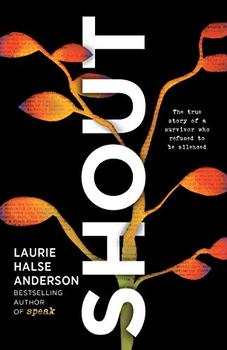Book Club Discussion Questions
In a book club? Subscribe to our Book Club Newsletter and get our best book club books of 2025!
For supplemental discussion material see our Beyond the Book article, 20 Years of Speak and our BookBrowse Review of Shout.
Please be aware that this discussion guide will contain spoilers!
- Why is the book divided into three parts? Why is the poem "Speak, Draft One, Page One" in Part One instead of Part Two?
- Reread "librarian on the cusp of courage" and discuss her interaction with Anderson. Is the librarian courageous at all? What does courage look like for survivors of sexual violence? What does courage look like for teachers? For school communities? For authors and other artists?
- Anderson repeatedly calls attention to the etymology and de� nition of words, and several poems explicitly compare words. Reread "two opposites of rape," "the word," and "shame turned inside out." How do these underscore her argument about the power of language?
- Anderson ends her introduction with the following sentence: "This is the story of a girl who lost her voice and wrote herself a new one." Discuss what events or attitudes silenced her voice. Find evidence in the book that she has written herself a new voice.
- Anderson says, "Danish is a tricky language," and explains how the pronunciation uses very different sounds than English. Why do you think she includes so many Danish words in her poems, particularly if she knows much of her audience is unlikely to speak the language?
- Reread "cave painting." What turning point does this articulate in Anderson's writing life?
- In the poem "Catalyst", the author describes how names in her novels are very carefully and deliberately chosen. Find examples when Anderson uses names in her poems. Then re� ect on why so many of her poems never offer a name (or pseudonym) for her subjects.
- What messages about words and sharing stories did Anderson receive as a child? Use poems such as "unclean" and "tsunami" to compare those childhood messages to her mature understandings about speaking one's truth.
- Why do you think Anderson wrote Speak first instead of writing a memoir about her experiences with sexual violence?
- The majority of Shout is written in free verse. What effect does reading this in poem form have on the reader? What is left out and what is emphasized through this form?
- There are three pieces in Part One that use prose instead of free verse. Reread the numbered paragraphs in "amplified," "ninth grade: my year of living stupidly," and "chronological cartography." Why are these stories told in prose? How is the tone different than the free verse?
Unless otherwise stated, this discussion guide is reprinted with the permission of Penguin Books.
Any page references refer to a USA edition of the book, usually the trade paperback version, and may vary in other editions.
